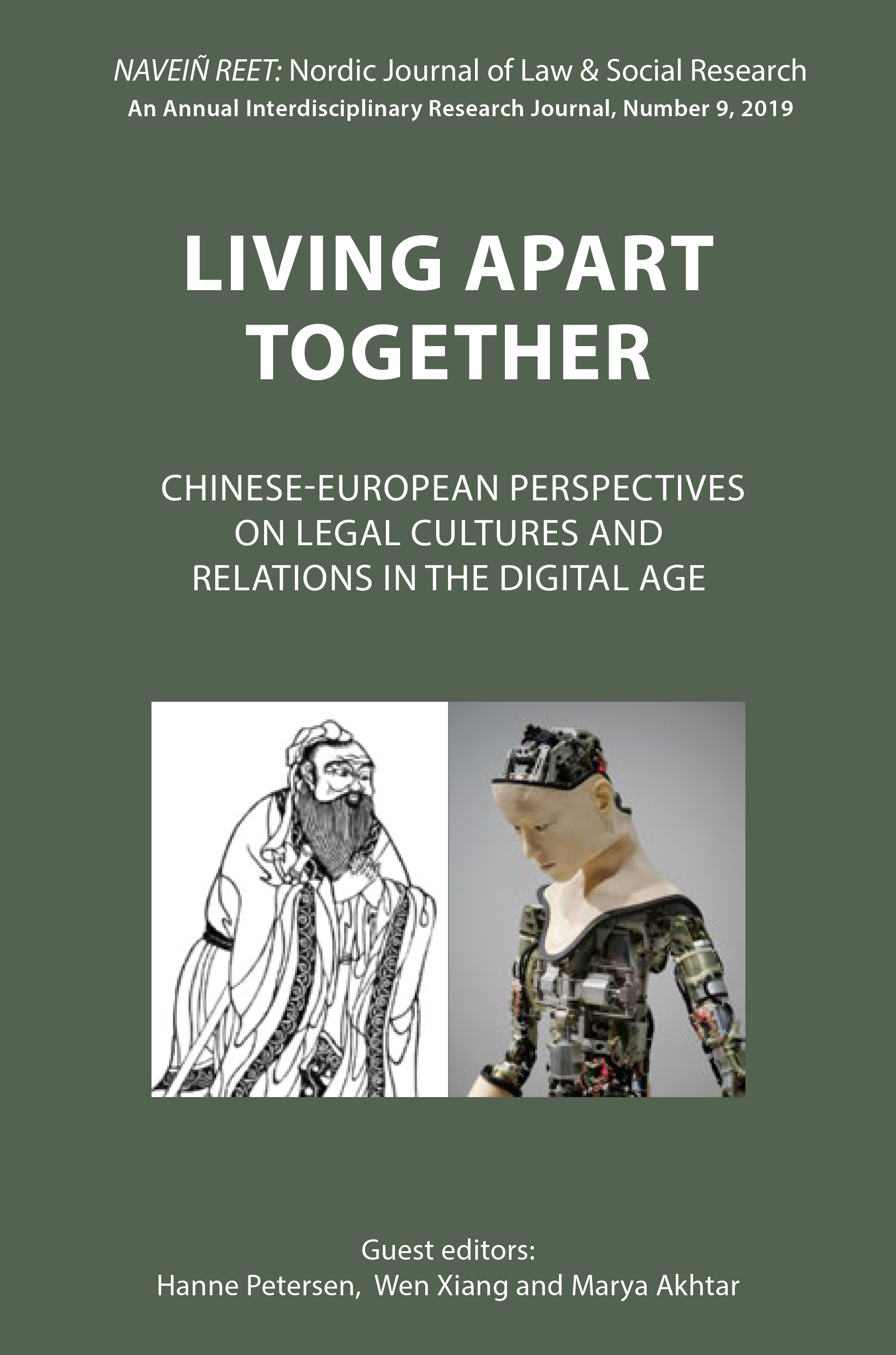China’s Sustainability Challenges
Confucianizaton of Chinese Law from Intra- Generational, Inter-Generational and Gender Equity Perspectives
DOI:
https://doi.org/10.7146/nnjlsr.v1i9.122149Abstract
The paper investigates how the leaders of the People’s Republic of China (PRC) have re-interpreted the three kinds of “equity” generally considered implicit in the 2030 Sustainable Development Goals (SDGs), namely inter-generational, intra-generational, and inter-gender equity, to fit the country’s context. To what extent is China’s recent “return to Confucius” paving the way to the use of the law as an instrument of “social moralization”? What impact is this trend having on the achievement of sustainable development within Chinese society? The following sections will answer these questions, showing if, how, and with what consequences, Chinese traditional values have recently undergone a “creative renovation”, in order to support, on the one hand, PRC government’s commitment to reach SDGs and to back, on the other, its attempt to resew Chinese social fabric, worn out by the dramatic economic development experienced by the country in the last decades.
Downloads
Published
How to Cite
Issue
Section
License
Counting from number 12 (2022), articles published in NNJLSR are licensed under Attribution 4.0 International (CC BY 4.0). Readers are allowed to copy and redistribute the articles in any medium or format, to adapt and revise the articles, and use the articles for commercial purposes, provided that the readers give appropriate credits.
No Creative Commons licenses are applied on articles in number 1 (2009)-11 (2021). All rights reserved by the authors. Readers are allowed to download, read, and link to the articles published in volume 1 (2009)-11 (2021), but they may not republish or redistribute these articles without permission of the authors.

